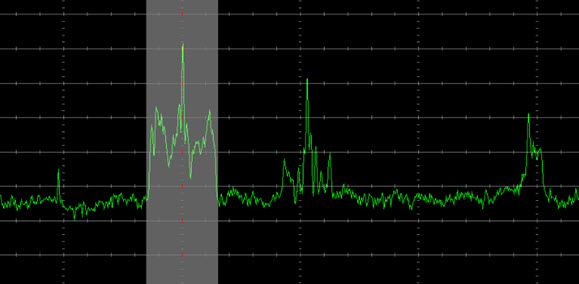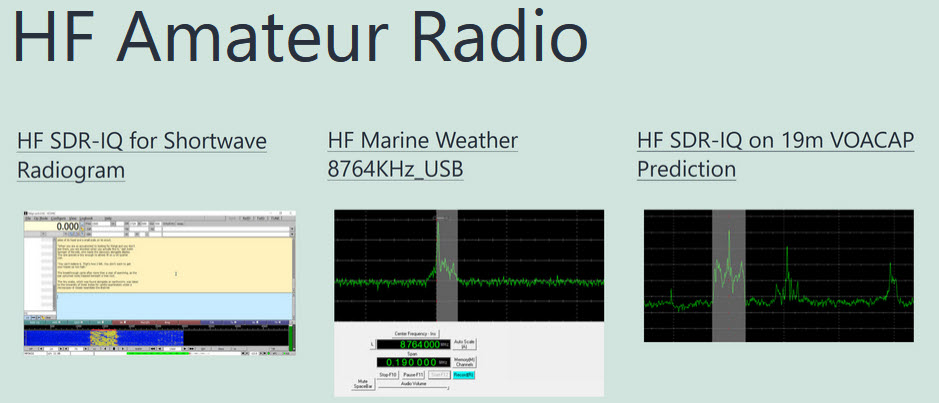Introduction
It’s been a while since I have monitored the HF bands, so I thought I would do a bit of scanning. In the last several years there has been a tremendous amount of construction near me and the HF noise level has increased quite a bit. I am right next to a power line which may also have some sort of signal carrier. My balcony has been rebuilt several times, so mounting my Buddipole HF antenna is rather risky now. So I used my HF Loop antenna which has several advantages. It is tuneable so you can get rid a lot of the noise as well it is directional. It is very easy to setup (one bungy cord) and take down in less than 1 minute. It is low profile so as not to upset curious neighbours.
Equipment Setup
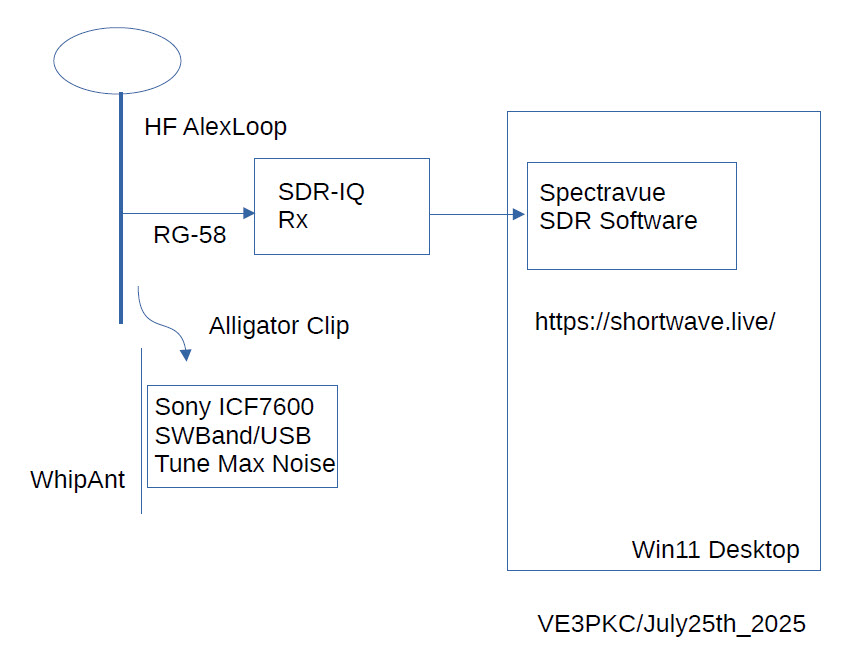
Figure 1 shows the HF equipment setup. First I tune the HF Loop antenna to the band I want to listen to. In the case of the 19m band I use a small Sony ICF7600 portable shortwave receiver to do this. I connect the center pin of the PL-259 antenna connector with an alligator clip to the Sony whip antenna. Then I set the frequency to 15.5MHz/USB and tune the loop for maximum noise. I use the SDR-IQ receiver (14bit ADC!!) with Spectravue software.
Transmission Schedule
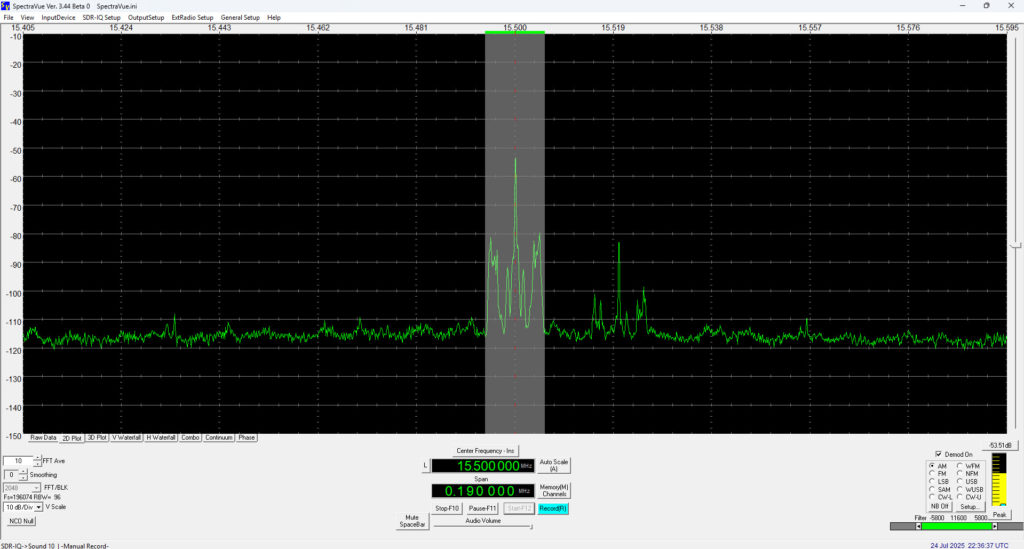

Tuning the 19m band I immediately noticed an extremely powerful station on 15500KHz as in Figure 2. I used the website “Shortwave Live” (Ref.1) to determine that this was Radio Exterior España with transmitter in Noblejas (south Madrid) as in Figure 3. Carrier peaks were between -50/-60dB and the noise floor was -115dB so a very strong signal indeed. The SDR-IQ bandwidth setting was 11600Hz.
VOACAP Propagtion
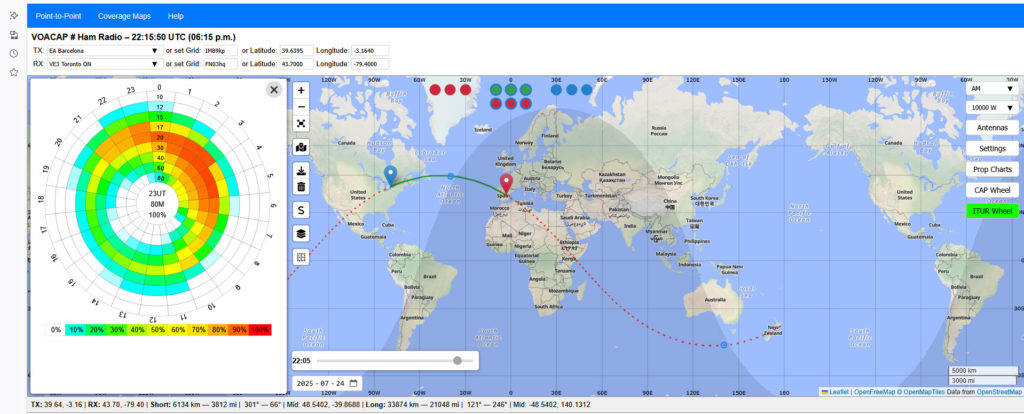
Since the receive signal was so strong, I thought it would be beneficial to study the current VOACAP prediction (Ref.2). I was not sure of transmit power but I used 10KW with simple dipoles on both Tx/Rx ends. This is conservative since I am sure the Tx antenna is some form of directional curtain array with higher power. Local time was approx. 1800 DST = 2400UTC. From the propagation wheel you can see excellent propagation from 2300/0300 on 20m and 2300/0000 on 17m which is what we are seeing. WWV at 15.0MHz was also received with a very strong signal.
HF Radio Telecommunications Learn by Simulation
Please send your comments, questions and suggestions to:
contact:

References
#1. – “Short Wave Broadcasting Schedules”
https://shortwave.live/
#2. – “VOACAP HF Prediction Software”
https://www.voacap.com/hf/
